Introduction
Definition
It is an even a flat unleavened and thin pancake .
It is cooked of either dough or batter on which a wrapper for another food can be used.

Ingredients
- Milk;
- Sugar;
- Flour;
- Oil water;
- Eggs;
- Sugar;
- Flour;
- Salt.

Background
- French crepes have a long history of celebration. February 2nd was the day when every home in France would make twelve crepes to eat together.
- The Britanny region in the North West of France was where the making of the crepes was done with much pride.
- Here they were made bigger and very thin and taken with a little causer sugar spread on top.
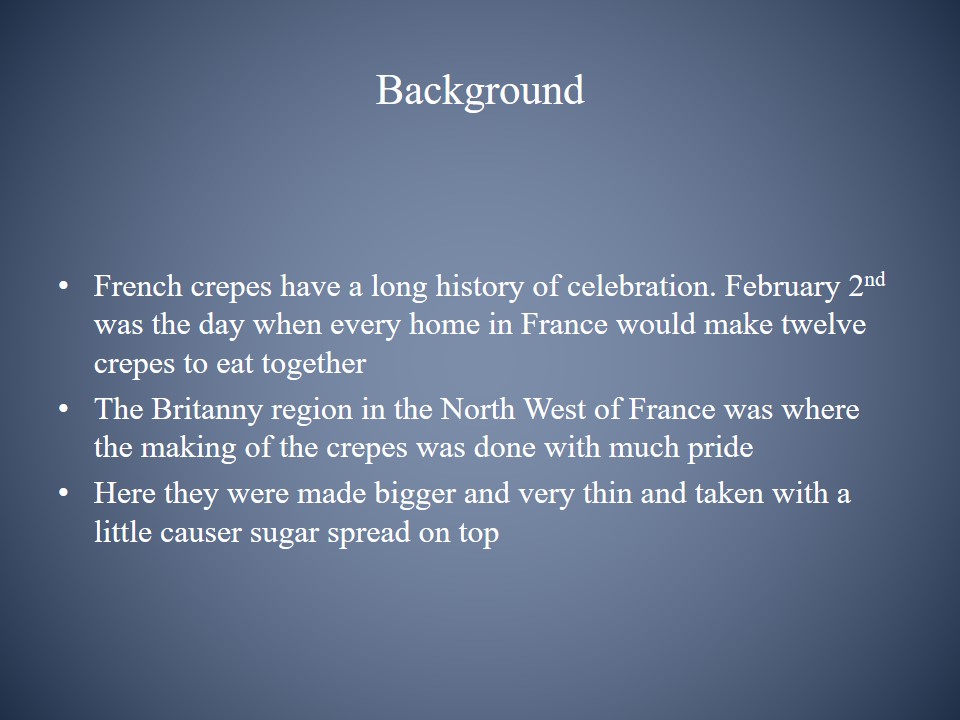
Religion
France has four major religions.
They are:
- Christianity.
- Islam.
- Jewish.
- Judaism.
Every of these religions on France have their own specific food preferences.
For instance:
- Muslims do not eat pork.
- Jains do not take onions.
- Christians do not eat meat from wild animals.
Despite their differences in the choice of food taken by these religions, they all have is a common underlying denominator. They all included crepes foods in their celebrations.
The Catholic Christians had an annual celebration on the 2nd of February every month. It was routine to eat either crepes or pancake during this celebration.
The Shrove Tuesday or the Mardi gra was a traditional religious festivity in which crepes were served for supper.

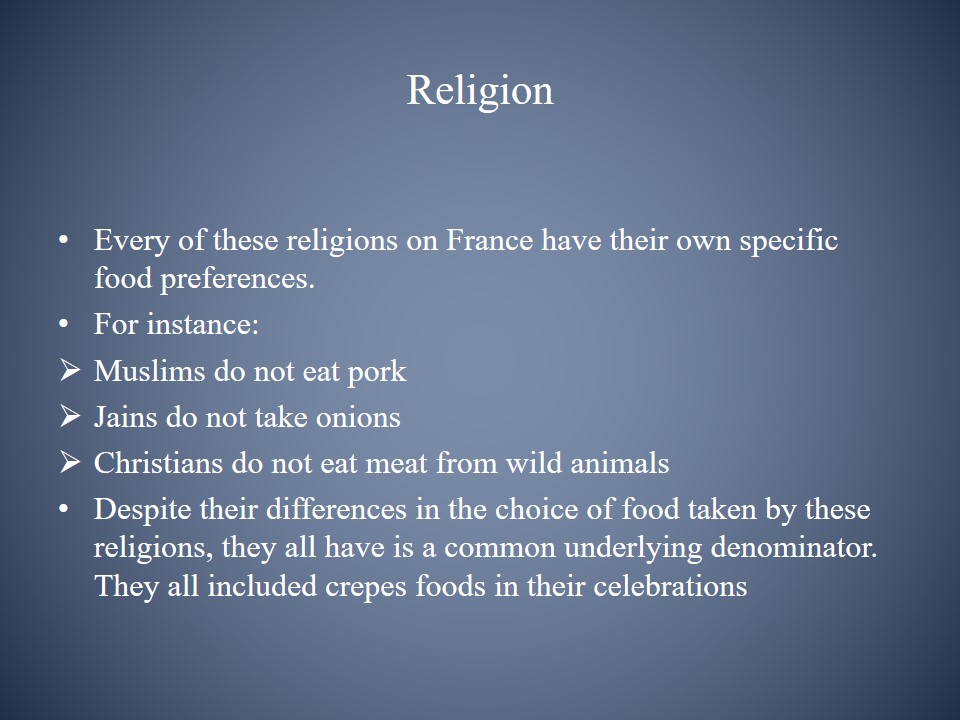
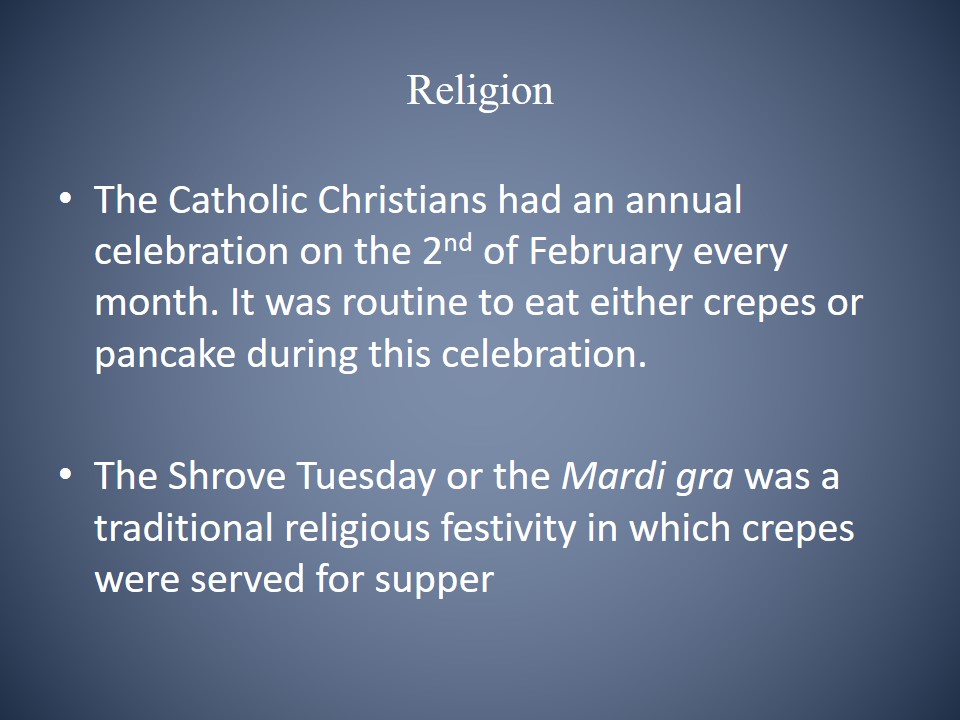
Diffusion
- Crepes are believed to have been brought to France in the sixteenth century by Catherine the Great of Russia and introduced to the French court.
- It also spread to other parts of Europe where is refereed to different names. For instance it is called filloas in Spanish and is made of pork blood in place of milk.
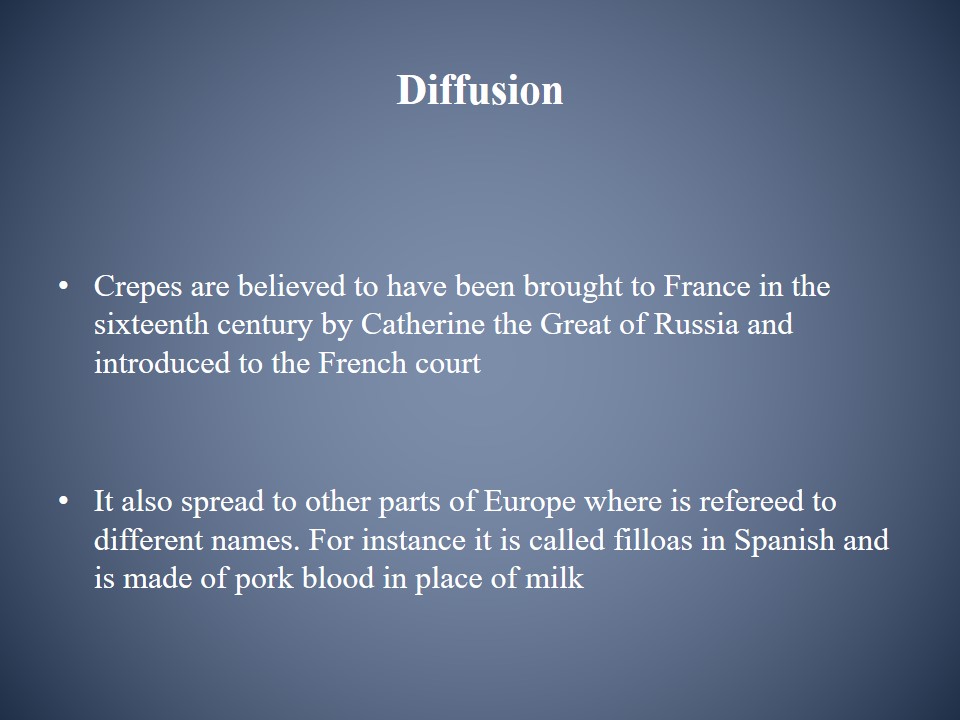
Cultural Landscape
- There exists different types and categories of crepes amongst the French culture.
- The most available types include the sweet crepes and the savory galettes.
- Cherries cooked in Kijafa wine source is one of the most famous French crepes.
- When made with eggs and milk, this kind of crepes make up for vegetarians.
- Various types of crepes are found in specific locations in France, portraying the cultural landscapes of such places.
- The Belgian crepe is made with slightly grated orange and is more synonymous with the Belgium living in France.
- The Beef Wellington crepe, which is coated with meat is more likely to be found within the Muslim neighborhoods.
- Mille crepe is made in layers and found across the country signifying different cultures.
- Crepes played an important role in cultural determination in France.
- Apart from the February 2nd candlemass celebration, there was a belief that crepes are related to wealth.
- An ability to catch the crepe with a frying pan, after tossing it on air with the right hand and while holding gold on the left hand was a sign of one becoming rich.
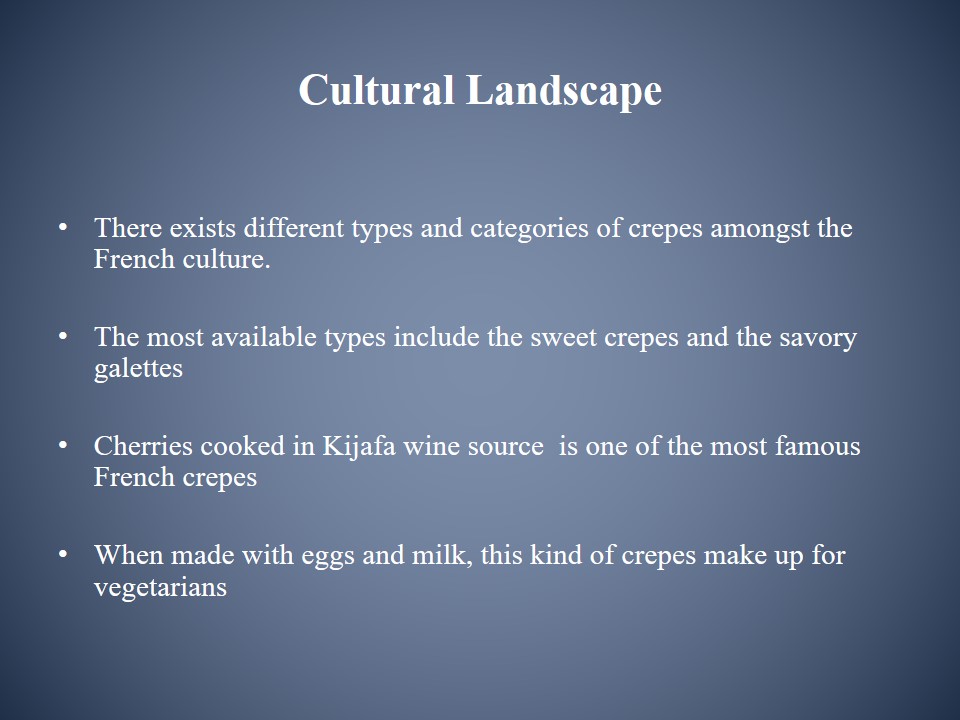
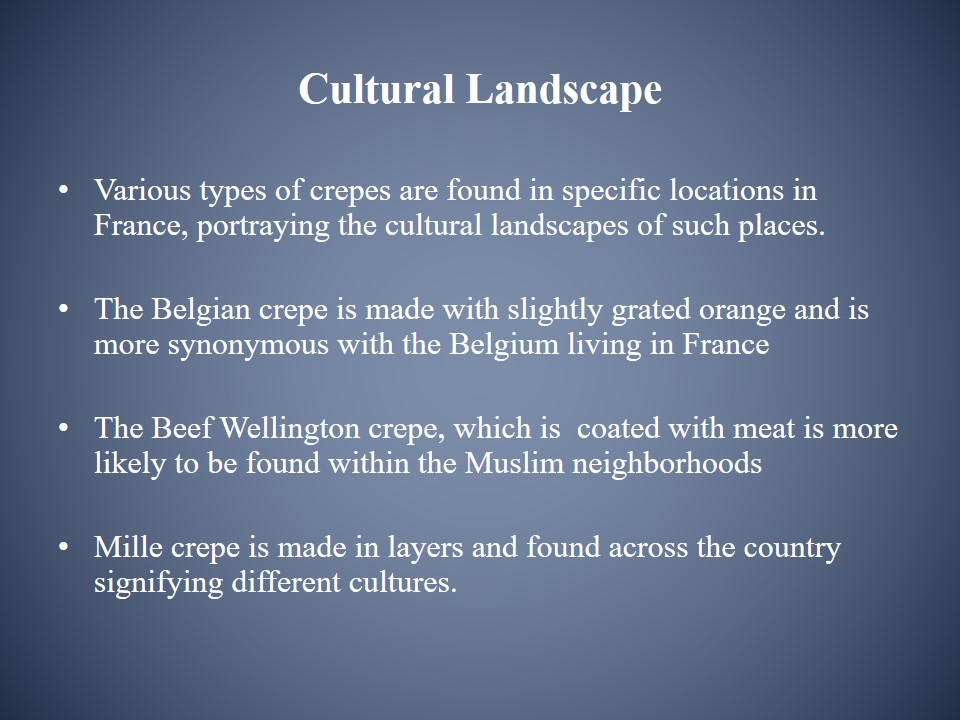
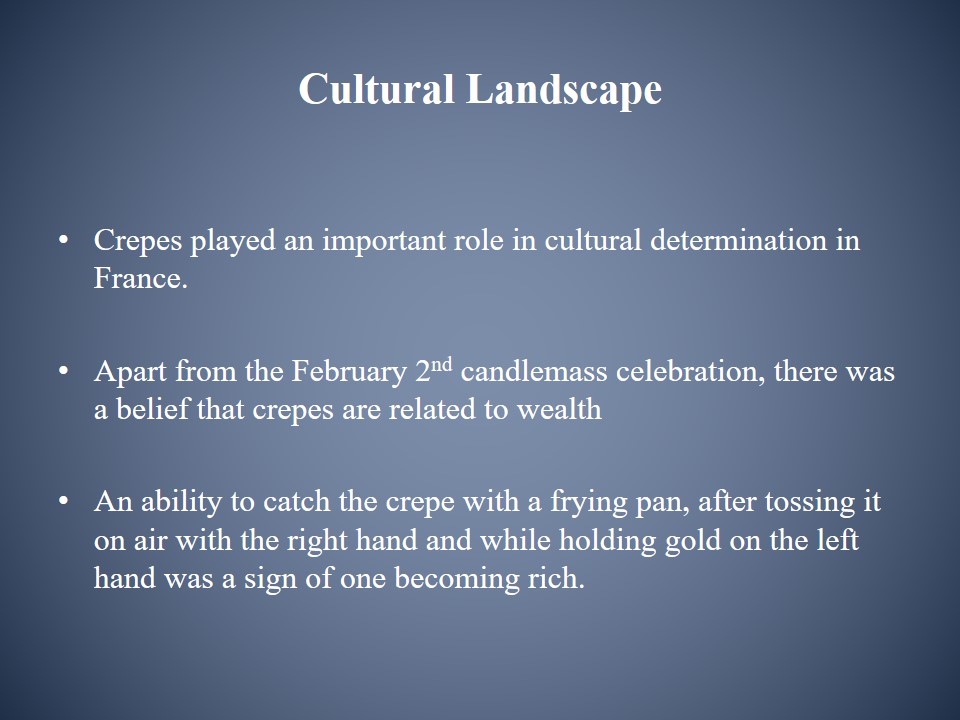
Distance decay
- The making of crepes involve several procedures and signifies the location and distance of a given region.
- Traditionally, crepe. Known as Crepes Suzette was made with caramelized sugar and served while hot with orange juice, Grand Marnier and orange peel.
- Over time this has however changed to give rise to the inclusion of several more other ingredients to give rise a variety and different types of crepes that are unique to culture, location and significance.
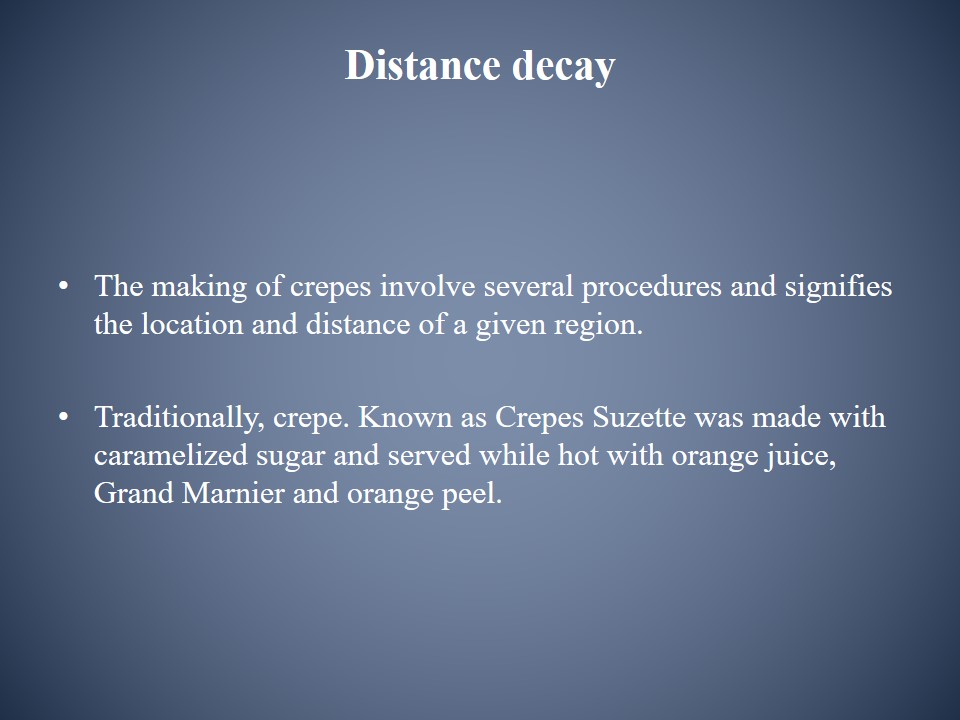
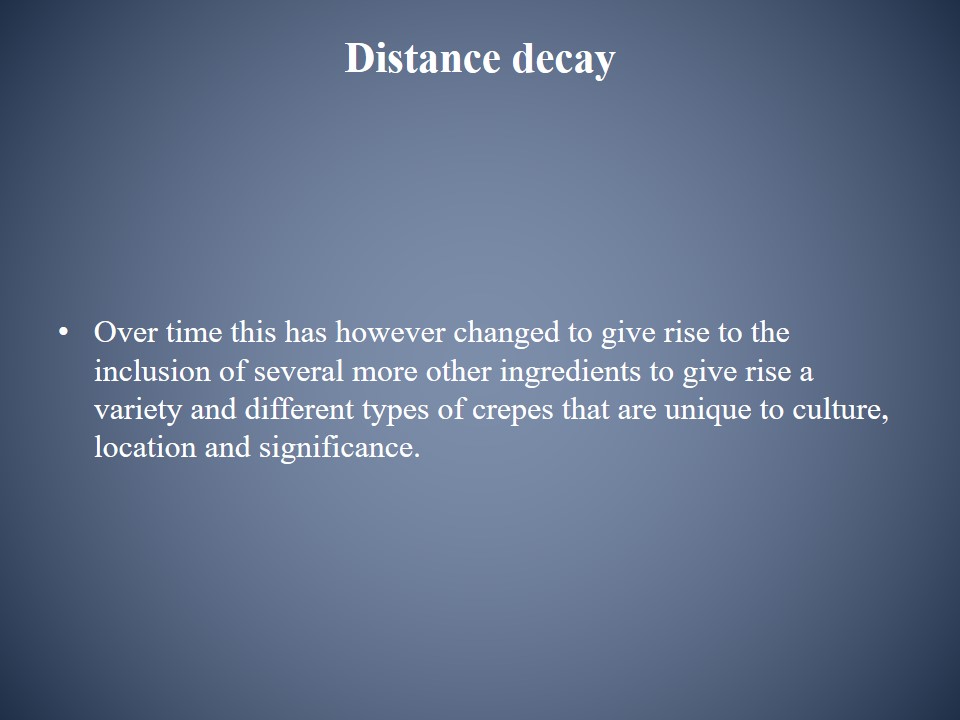
References
- Bowen, J. R. (2008). Why the French Don’t Like Headscarves: Islam, the State, and Public Space. New Jersey (NJ): Princeton University Press.
- Frommer’s ShortCuts. (2011). Bordeaux and the Atlantic Coast, France, Including a Side trip to Limoges: Frommer’s ShortCuts. New York (NY): John Wiley & Sons.
- Levy, F. (2011). AARP 1,000 Jewish Recipes. New York (NY): John Wiley & Sons.
- MacVeigh, J. (2008). International Cuisine. New York (NY): Cengage Learning.
- Willan, A. (2007). The Country Cooking of France. New York (NY): Chronicle Books.